The Essential Joel Schumacher
The news that director Joel Schumacher passed away represents the passing of another essential director for those in my generation. As a filmmaker he was perhaps seldom hailed as a visionary, and indeed he was perhaps better known for his spectacular flameouts. In particular, he is perhaps unfairly maligned as the destroyer of one of the 90s most notable franchises. Indeed he famously offered an apology for his contributions to the "Batman" franchise, though to be fair he was following studio directives in making a lighter, sillier, more kid-friendly Caped Crusader, and the results shouldn't fall solely on his shoulders.
But Schumacher was a steady hand across 3 decades (he has two forgettable features in the 2010s, and directed two episodes of "House of Cards"), producing crowd pleasing fare that entertained and at times forced mainstream audiences to at least consider controversial issues, if not asking them to think too hard.
His hits are some of the more "oh, yeah" notable films you'll encounter, creating favorites across the 80s and 90s especially, with a few second-tier films that are memorable if not massive hits.
Here are a few of Schumacher's more notable films, ones that, as we look back on his career, are worth revisiting, if not as classics, at least as films of their time that achieved a measure of success.
Batman Forever (1995)/Batman and Robin (1997)
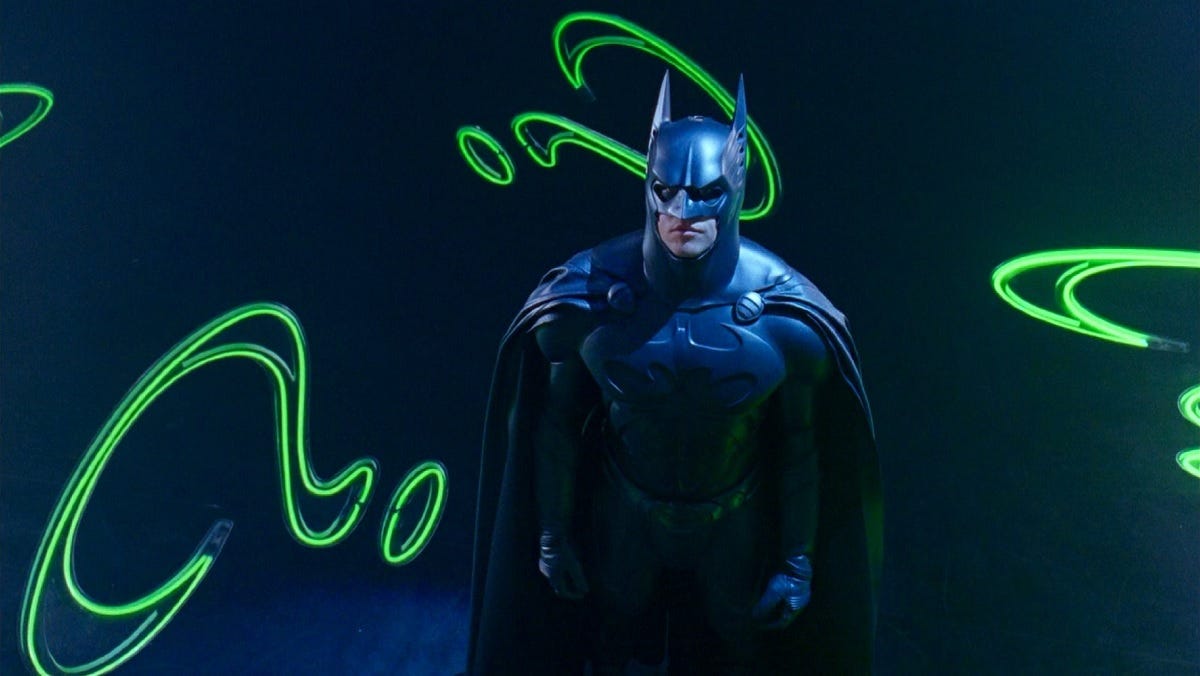
"Batman and Robin" is easily the more reviled of these two films, but go back and look: 1995's "Batman Forever" isn't all that much better. In fact, perhaps the worst part of "Batman and Robin" is that it's a poor facsimile of "Returns," which introduced us to batnipples (go back and look), corny catchphrases, silly, over-the-top, neon-drenched theatrics, and ridiculous villain pairings. Sure, the pairing of the comedic Riddler (Jim Carrey) and the dark, depressing Two Face (Tommy Lee Jones) may feel less at odds than the diametrically opposed Mr. Freeze (Arnold Schwarzenegger) and Poison Ivy (Uma Thurman), but they're still tonal opposites shoehorned together.
That's not to say there's nothing positive about "Forever." It was a massive hit in the summer of 95, ruling the box office and the music charts (and Schumacher also partly directed Seal's "Kiss from a Rose" video, wisely placing the singer in front of a Batsignal in it), and it was something of a cultural touchstone, something that captured the essence of its time.
8MM (1999)
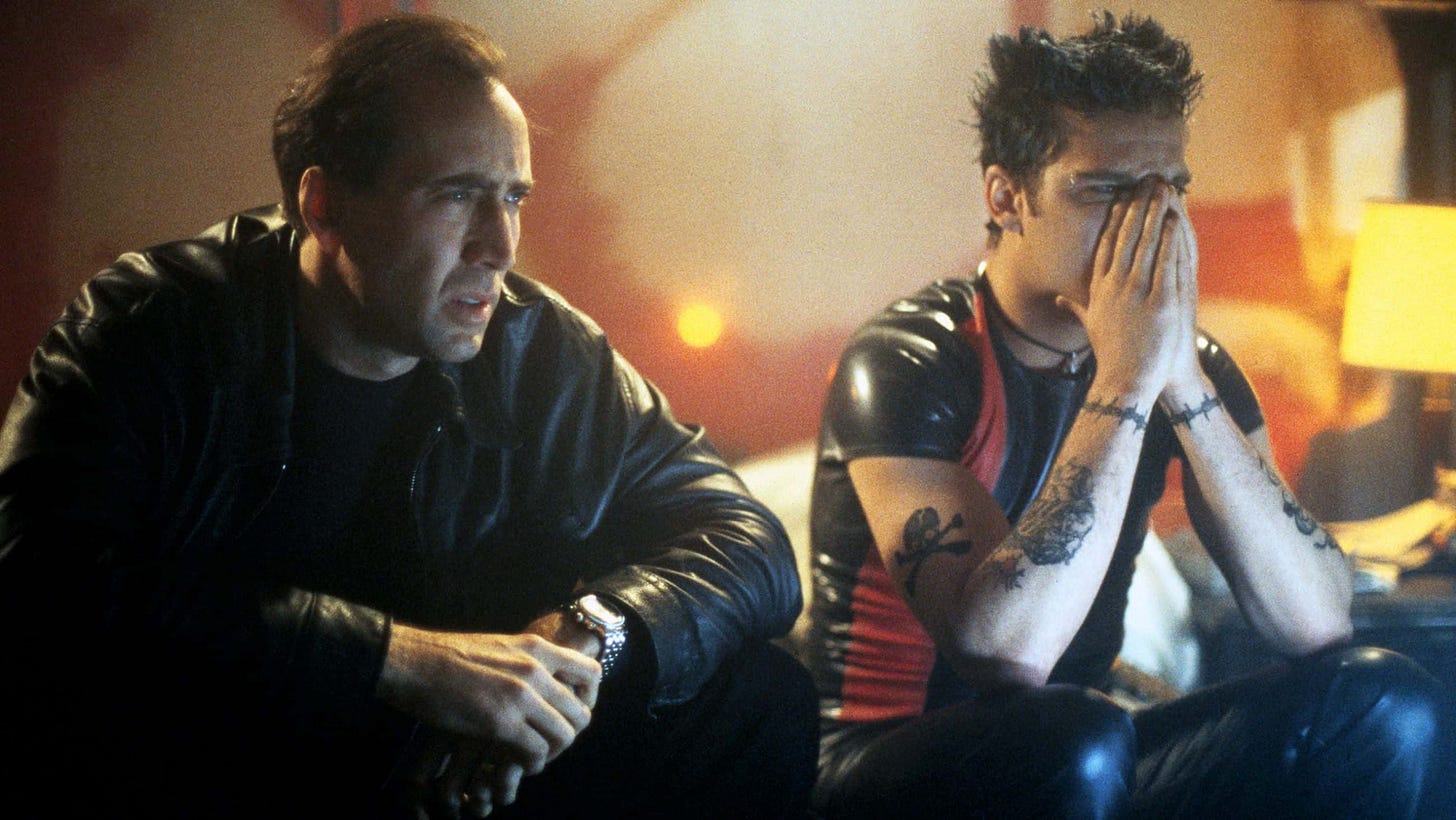
This Nicolas Cage vehicle is often forgotten, sometimes maligned, but as an exploration of the seedy underbelly of humanity, it's something of a minor masterpiece. Cage plays Tom Welles, a PI tasked with verifying the authenticity of a film found in the vault of a wealthy many who passed away. Grimy and often bizarre, the film dives headfirst into some of the ickier aspects of human sexuality--namely, what kind of person is aroused by images of someone being murdered?
The answer, of course, is all of us, and in that way "8MM" is an exploration of the fetishization of violence, and its script, by veering into a typically violent finale, becomes sort of a self-fulfilling prophecy. The cast is as eclectic as it is strong: Cage, Catherine Keener, a pre-Sopranos James Gandolfini, and a batshit-crazy Peter Stormare as the perfectly-named Dino Velvet, a pornographer of the lowest sort. And Joaquin Phoenix made one of his first real steps into stardom as the quirky Max California, Welles' accidental sidekick. A lurid, darkly entertaining film, 8MM is perhaps Schumacher's most under-appreciated work.
The Lost Boys (1987)
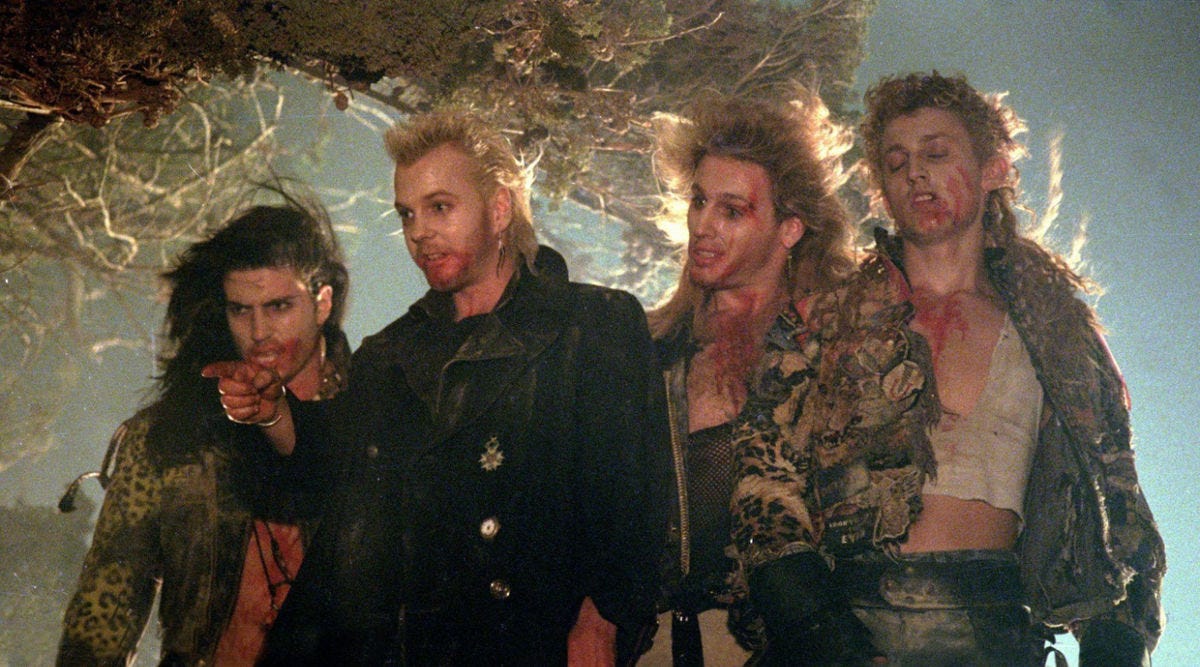
If there's a Top 10 of The Most 80s Films, "The Lost Boys" is somewhere on it. Its cast is a who's-who of young 80s actors, including Kiefer Sutherland, Jason Patric, Jami Gertz, and the first pairing of Coreys Feldman and Haim, It also pushed mainstream horror harder into self-awareness, with its vampire-hunting Frog brothers (Feldman and Jamison Newlander), whose comic-book knowledge of vampires gave them an advantage many of their predecessors-in-garlic didn't have: the knowledge of how to defeat their undead tormentors. While "Fright Night" did it first, "The Lost Boys" truly made it cool to know your monsters and how to kill them, and Sutherland, Patric, and their brood made it cool to be those monsters in a way that few others did before.
Even if "The Lost Boys" isn't wholly original (the similarly-themed "The Monster Squad" came out the very same year, and a decade later "Scream" would become the seminal film of its type), it still largely holds up today, silly 80s hair and clothing styles be damned. It's perhaps the film Schumacher is best known for where a bat isn't the good guy, and one that certainly captures the zeitgeist in which it exists.
Falling Down (1993)
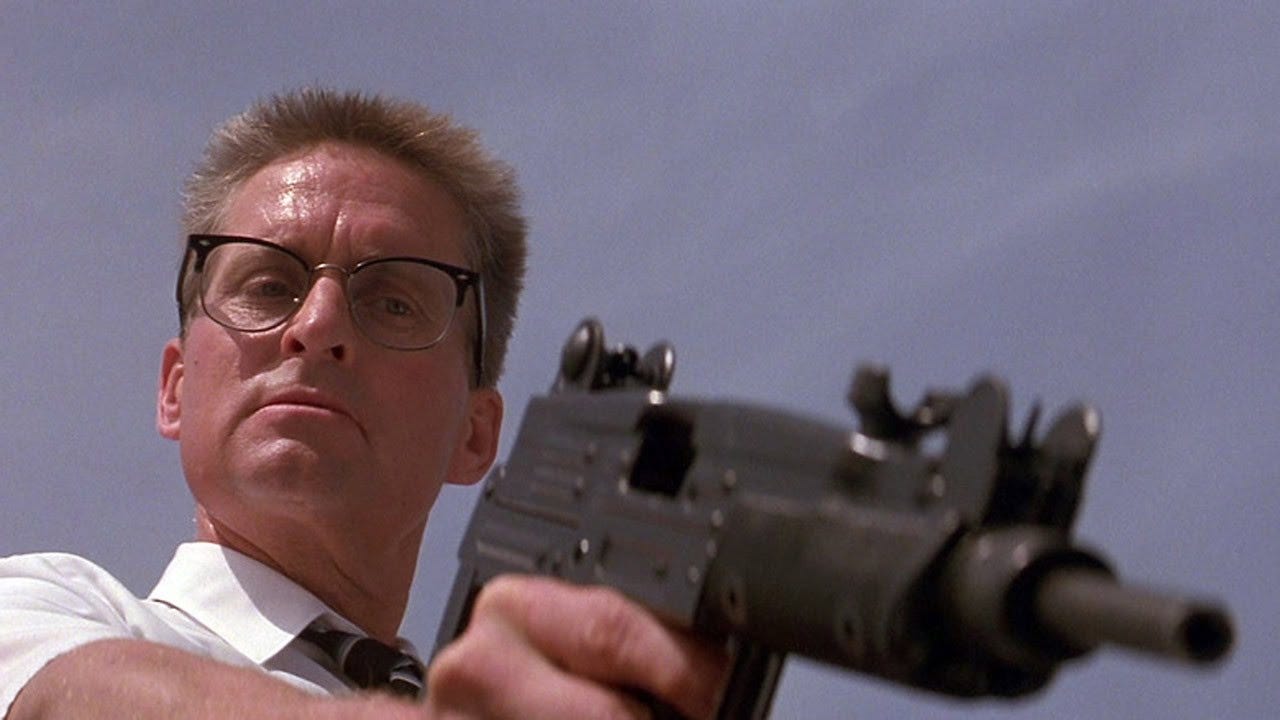
Arguably Schumacher's most politically controversial film, "Falling Down" remains a minor cult classic among both conservative and liberal groups alike. The right sees it as something of a "Death Wish" revenge fantasy; the left looks at it as a cautionary tale of toxic masculinity, the last gasps of a demographic that has been making itself obsolete for years.
Michael Douglas plays the film's main character, a defense worker (whose name is given only as "D-Fens," revealed as his license plate number at the beginning of the film). When he grows weary of the daily grind of commuting to a dead-end job, in service of the rat race of existence, he abandons his car and embarks upon an increasingly unhinged rampage that would grip the city. He encounters many of Los Angeles's more notable minority groups: a Korean shop owner who refuses to negotiate the price of a can of Coca-Cola, a group of young black gang members, mostly white fast food employees who refuse his lunch order because breakfast is being served for several more minutes, and a homophobic white supremacist whose true leanings come to light under stress.
In the turbulent early 90s, there were a litany of films dealing with social/racial unrest, and when the trend was to do so from the perspective of the oppressed minority, few did so largely from the white perspective. That this one did makes it suitably provocative, even if it doesn't always hit the right marks. Still, again, it captures the essence of its time, the chaotic post-Reagan-but-not-really period into which some may astutely note we as a country have found ourselves right back in the midst of today.
A Time to Kill (1996)
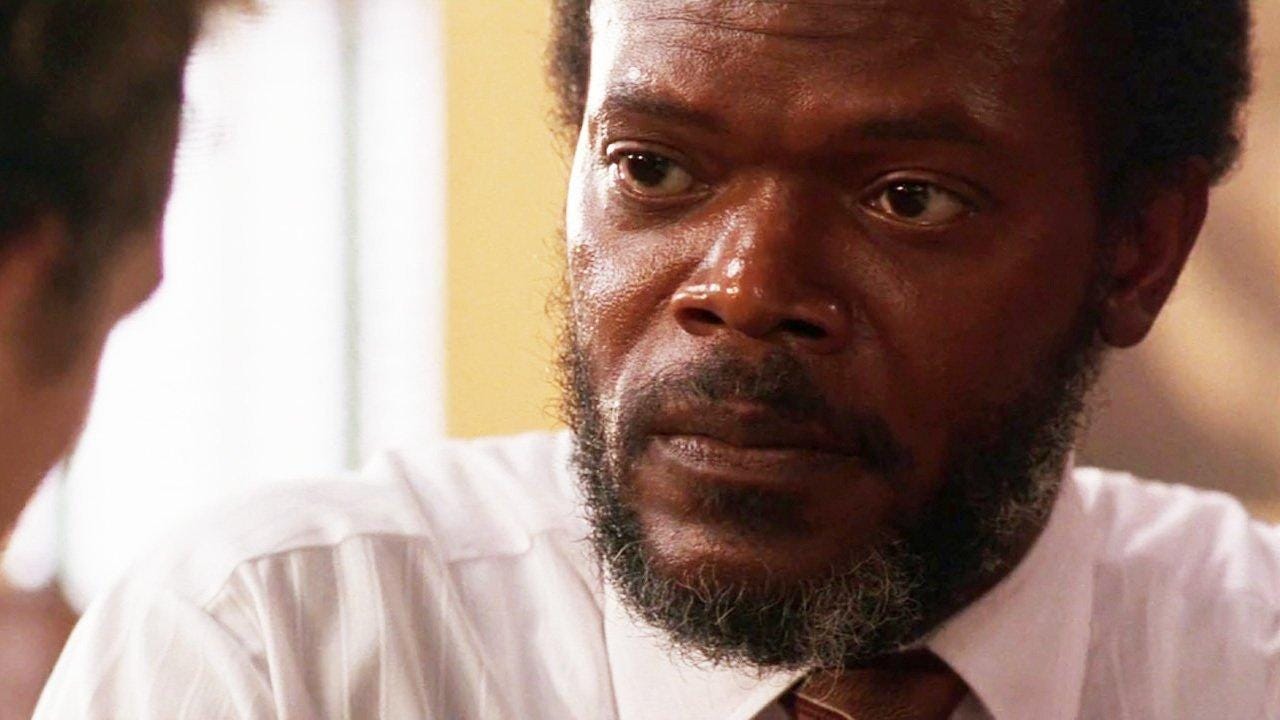
A tonal if not total thematic companion to "Falling Down," it wouldn't be hard to see this courtroom drama as Schumacher's attempt to clarify his position on race. Samuel L. Jackson plays a black man man accused of--hell, who admits--he killed the two white men who raped his young daughter. Based on John Grisham's novel, "Kill" may by today's standards smack somewhat of white savior-ism, but again captures the essence of the OJ Simpson era, where the courtroom was quickly becoming its own form of entertainment. Reality TV before it was cool (and quite so fake), as it were.
The cast at the time certainly at least borders on all-star status: Sandra Bullock was in the midst of becoming one of the hottest stars in Hollywood, as was co-lead Matthew McConaughey and Jackson himself. Names like Kevin Spacey, Oliver Platt, Charles S. Dutton, Donald and Kiefer Sutherland, and Ashley Judd were all more or less household names at the time or soon would be, at least partially due to this film.
Other notable Schumacher films

Schumacher was as popular with actors as he was audiences--you'll find a litany of actors who did multiple films with Schumacher. In the 80s he also helmed "DC Cab," a comedy starring Mr. T, and notables including Adam Baldwin, Gary Busey, and a young Bill Maher. He also helmed 1985's Brat Pack opus "St. Elmo's Fire," with Emilio Estevez, Rob Lowe, Demi Moore, Judd Nelson, and Ally Sheedy, among others.
Kiefer Sutherland seemed especially fond of him also working with Schumacher on 1990's "Flatliners," a film about young med students bringing themselves back from the dead, with a cast that includes Julia Roberts, Kevin Bacon, Platt, and William Baldwin. 1994's "The Client" gave him Susan Sarandon, Tommy Lee Jones, and a young Brad Renfro as a boy who witnesses the suicide of a mafia lawyer and becomes a pawn in a political game to take down a mob family.
And while his career in the 2000s was perhaps winding down, it's punctuated by the middling Gerard Butler-starring "Phantom of the Opera," the tense Colin Farrell/Kiefer Sutherland thriller "Phone Booth," and the spectacular Carrey misfire "The Number 23."


